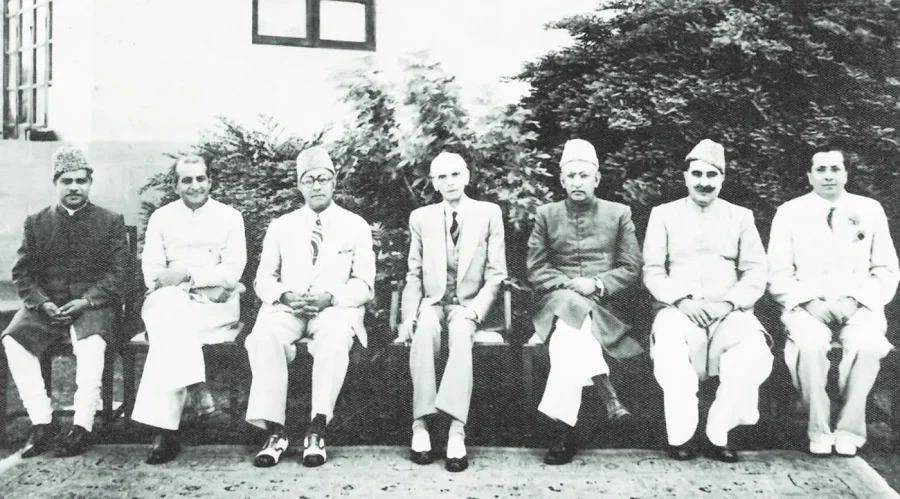CERTAINLY, Pakistan’s 78th Independence Day anniversary provides us a combined sense of humble pride with thoughtful deliberations. Historically, the creation of Pakistan on 14 August, 1947 owes a great commitment to the cause of freedom of movement marked by unity of the Muslims of the subcontinent. Quaid-e-Azam Mohammad Ali Jinnah’s sagacious leadership provided an everlasting vision to the newly founded state of Pakistan via his patriotic ideology of Pakistan–profoundly espoused by the spirit of faith, unity and discipline. As an ideal modern state, Pakistan has unquestionably demonstrated a force of national integration imbibed with the strength of patriotism. Unfortunately, ever since Pakistan’s joining of the US-waged war on terrorism, as a state Pakistan became a direct target of terrorism in the region. Pakistan has been facing new challenges in terms of economic and political stability, marring our security. Yet in the wake of polarized identity politics, harming our national unity and democratisation; our patriotism (displayed by our security forces) must be our great national armour of addressing our political, economic and security challenges.
In the words of political thinker John Smith once argued that people create whole states just to make the point about who they are and how they are different from others. While this idea has in some way been evident since antiquity, it was only after the end of the Cold War that contemporary political science began to emphasize the role identity plays upon the ability of the state to govern. As for our South Asian identity, while embracing our ideology, we are a Pakistani first, a Pakistani second and a Pakistani last. Thus, the force of patriotism must precede other sub–cultural identities. Quaid-e-Azam said: “We must develop a sense of patriotism which should galvanize and weld us all into one united and strong nation’’.
Like in other modern-state system, Patriotism plays a leading role in shaping our nationalism. Pakistani nationalism is an ambulation of national unity embraced by our cultural values and identity. Since the very creation of Pakistan, patriotism has been the hallmark of Pakistan armed forces thereby forging a strong bond between the military and the citizens of Pakistan. This mutual pride leads to a collective sense of duty, reinforcing the commitment of armed forces to protect and uphold our national image. In this contest, it is rightly pertinent to share the observation passed by Pakistan National Command Authority’s advisor, Lt. Gen (retd) Khalid Kidwai, who has currently reaffirmed that our nuclear capabilities hold the pride and commitment of defending our sovereignty against external threats.
Since the creation, Pakistan’s federal forces have worked in harmony— towards achieving prosperity, state and nation building. Though presently Pakistan has an unfathomable defence and fairly developed infrastructure, it is engulfed with a host of political and economic challenges. In Pakistan, the interplay between patriotism and identity politics has led to significant tensions and challenges for democracy and national unity. In recent years, major markers of Pakistani identity, such as religion, ethnicity and language, do intersect with nationalist sentiments and interests. Political actors have sometimes utilized these identities to polarize the populace and strengthen their positions. Thus, this tool of strategic or ethnic nationalism has threatened the stability of the country.
Our enemies’ agenda via 5th generation warfare is to divide us on the ethnic lines (Muhajir, Sindhi, Punjabi, Balochi, Pushtoon, Saraiki, Kashmiri and Baltistani). The truth unfolds that Pakistan reflects the values of unity in diversity. It goes without saying that at the time of independence, there was no such thing called ethnic diversity. The fact remains that at that time Pakistan sub-cultural forces were merged into the national identity of a Pakistani.
According to the Pakistan Bureau of Statistics, out of the total population, 85–90% are Sunni Muslims, 10–15% are Shia Muslims, and the remaining are religious minorities. At the time of independence, the number of religious minorities out of the total population was 25%. It has now dropped to just 3%. The biggest challenge today is to halt an ultranationalist trend formed by ethnic polarisation in Balochistan and the KP provinces. Years beyond years, Pakistani society (despite its ethnic diversities) has worked in tandem with the state institution.
Nevertheless, the disturbing aspect of evolving trends of violence in our political behaviour and culture is ominous to the very foundations of Pakistan’s ideology. Consequently, this trend of forming group identities is harming our national integration. Arguably, the rhetoric of eliminating the opponents by violent means and propagating the blood revolution across the streets of Pakistan is harming our social solidarity, already frustrated because of poor basic amenities like education, health and employment, etc.
Moreover, a big challenge –posed to our security state is to eliminate the terrorist networks –emerged in the post 9/11 world, transforming the traditional security paradigm with the non-traditional orientations whereby major security threats are intrinsically posed by non-traditional means. For the last two decades, Pakistan security forces have been sacrificing a lot to deter terrorism. As Pakistan emerges on the global stage, its unique cultural fabric must become a source of strength and identity, reminding us that through patriotism a plural unity can be found in our body politic. True, amid the imbuing challenges, Pakistan continues to promise a vibrant future, one thread at a time diversity, and beauty emerges from the harmonious blending of different threads where embracing cultural fusion remains integral to Pakistan’s identity and resilience.
With resolve, we can address the present and future challenges via our whole-hearted submission to our patriotic spirit, the force which can weave a tapestry of national, institutional and democratic harmony. As a united force, we can build Pakistan politically, economically and militarily a strong State. That said, on the eve of Pakistan’s 78th Independence Day, symbolically, our nation needs to rebound a javelin patriotic through –demonstrated by the 2024 Paris Olympic Gold medalist Arshad Nadeem– to beat the forces of political antagonism, ethnic polarization accompanied by anti-Pakistan conspiracies. Pakistan Zindabad!










